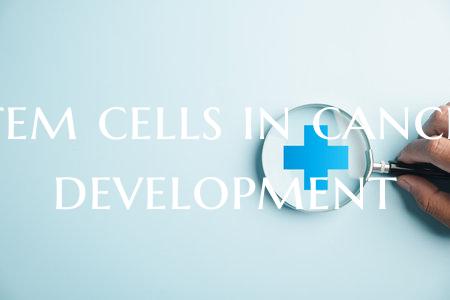
Stem cells in cancer development
Introduction: Stem cells are undifferentiated cells with the unique ability to self-renew and differentiate into specialized cell types. While their role in tissue regeneration and maintenance is well-documented, emerging research suggests that stem cells also play a pivotal role in cancer development. Understanding the intricate interplay between stem cells and cancer can provide valuable insights into disease progression, treatment resistance, and potential therapeutic strategies.
The Origins of Cancer Stem Cells: Cancer stem cells (CSCs) are a subpopulation of cells within a tumor that share characteristics with normal stem cells, including self-renewal and differentiation capabilities. These cells are believed to drive tumorigenesis, metastasis, and recurrence due to their ability to regenerate the heterogeneous cell populations comprising a tumor. It is thought that CSCs possess inherent resistance mechanisms, making them particularly challenging to target with conventional cancer treatments.
Stem Cell Niches and Tumor Microenvironment: The stem cell niche, a specialized microenvironment that regulates stem cell behavior, is also implicated in cancer development. Disruption of normal stem cell niches within tissues may contribute to the initiation and progression of cancer by altering cellular interactions and signaling pathways. Additionally, the tumor microenvironment, characterized by inflammation, hypoxia, and altered extracellular matrix composition, can influence stem cell properties and promote malignant transformation.
Therapeutic Implications: Targeting CSCs and the stem cell niche represents a promising strategy for cancer therapy. By identifying specific markers and signaling pathways associated with CSCs, researchers can develop targeted therapies to selectively eliminate this treatment-resistant cell population. Manipulating the tumor microenvironment to inhibit stem cell support systems may also enhance the efficacy of conventional treatments and prevent cancer recurrence.
Future Directions: Further research is needed to elucidate the complex relationship between stem cells and cancer and explore innovative therapeutic approaches targeting CSCs and the tumor microenvironment. Advancements in stem cell biology, genomics, and imaging technologies offer new opportunities to uncover the mechanisms driving cancer development and resistance. By harnessing the regenerative potential of stem cells while disrupting their contributions to cancer, we may revolutionize the way we approach cancer treatment and improve patient outcomes.
In conclusion, stem cells play a multifaceted role in cancer development, offering both challenges and opportunities in the fight against this complex disease. By leveraging our understanding of stem cell biology and applying it to cancer research and therapy, we can make significant strides towards more effective and personalized cancer treatments.